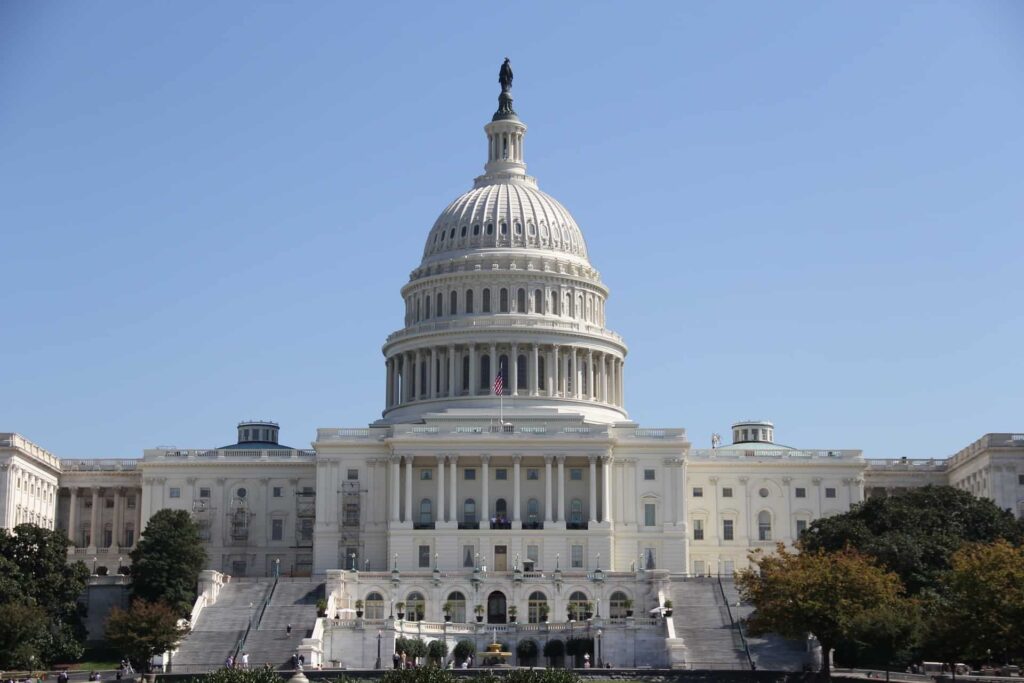Mark Vieth, Senior Vice President at Cavarocchi Ruscio Dennis Associates and the Foundation for Peripheral Neuropathy’s advocacy consultant in Washington DC, provided an update on FPN’s efforts to include peripheral neuropathy in the list of conditions and diseases eligible for research funding under the Department of Defense’s Peer-Reviewed Medical Research Program.
The Campaign: Get PN included in the DoD Research Funding Budget
In March 2019, FPN initiated an advocacy program to promote more government spending on peripheral neuropathy research through the DoD’s medical research fund.
Through the concerted effort of our constituents and associates, including support groups and peripheral neuropathy groups across the U.S., we had a ground swell of letters written to U.S. senators by constituents supporting our cause. Through this, Mr. Vieth was able to personally meet with the senators to encourage them to vote for the inclusion of peripheral neuropathy for research funding. Through letters or through personal meetings, more than half the U.S. senators in Washington were contacted and heard our story.
Campaign update: July, 2019
Mr. Vieth’s update on our campaign is provided below:
On July 25, the House approved a bipartisan budget agreement by a vote of 284-149. This vote occurred several days after the president and Congressional leaders reached a two year agreement to increase caps on both defense and non-defense discretionary spending, covering fiscal years 2020 and 2021. On August 1, the Senate cleared the agreement by a vote of 67-28 and sent the measure to the president, who is expected to sign it into law. The House and Senate will be in recess during the month of August, but enactment of the agreement clears the way for the senate in September to begin marking up their fiscal year 2020 appropriations bills.
The bipartisan budget agreement would allow for a $22 billion increase (3.1%) in total defense spending over FY 2019 levels and a $27 billion increase (4.3%) for non-defense spending. Discretionary defense spending for FY 2020 would total $738 billion, while non-defense spending totals $632 billion.
The House has completed action on most of its appropriations bills, including the FY20 Defense and Labor-Health and Human Services-Education Appropriations Acts. The Senate will attempt to mark up their versions of these measures in early September. It is uncertain at this stage if the Senate will be able to include another $2 billion increase for the National Institutes of Health under this agreement.
The budget agreement does NOT prevent a government shutdown from happening at the end of September (despite reports and press releases saying otherwise). Congress must enact the fiscal year 2020 appropriations bills into law to prevent a shutdown, or pass a continuing resolution before the end of September to fund agencies at existing fiscal 2019 levels. The budget agreement creates a framework that will facilitate the passage of these bills, but the hard work comes in deciding the details on how much each government agency and program will receive in fiscal year 2020.
What does this mean for our efforts and the PN Community?
As a result of all of this activity, September will become a critical month for the Peripheral Neuropathy community. As early as the week of September 9, the Senate Appropriations Committee will be marking up its version of the Defense Appropriations Act, and will be making a decision on whether or not to include “peripheral neuropathy” among the conditions eligible for study under the Department of Defense’s Peer-Reviewed Medical Research Program (PRMRP). If community members have an opportunity to meet with their Senators or their staff during the August summer recess, they should use this opportunity to continue advocacy for including peripheral neuropathy in the PRMRP.
And to Conclude:
FPN thanks Mark Vieth as well as everyone who has already put effort into contacting their Senate representatives in Washington. We encourage anyone who wishes to contact or meet with their senators during August while the representatives are in the home states. FPN, with the help of Mr. Vieth, will continue to track the progress in Washington, D.C. We hope our next report will be to announce the inclusion and increased availability of funding for peripheral neuropathy research.
For more information on how to help us with this campaign, or to help support us through donations to keep this important initiative going, please feel free to contact us at [email protected] or donate directly here.
